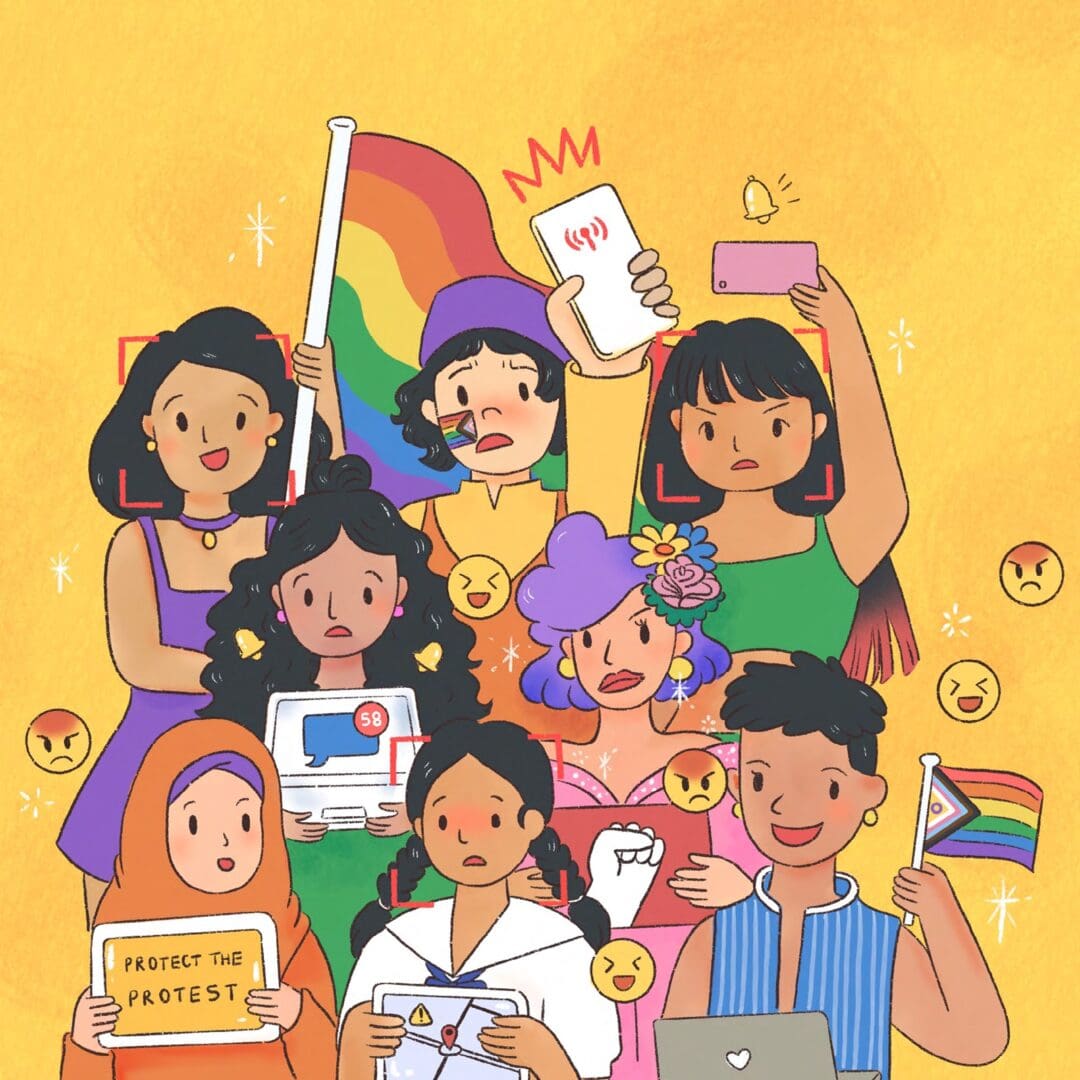Thailand has long positioned itself as a champion of gender equality. The Tourism Authority of Thailand’s campaign “Go Thai, Be Free” presents Thailand as the “most LGBTIQ / LGBTI+ welcoming country in Asia” and states that: “In Thailand, we believe diversity is amazing.” In 2022, Thailand hosted the Global Summit of Women where the former Prime Minister, Prayut Chan-o-cha, pledged to promote gender equality and empower women. In 2023, a new government similarly expressed its commitment to guarantee “gender equality” and pledged to pass laws to legalize same-sex marriage, decriminalize sex work and allow for legal gender recognition with an ambitious goal for Thailand to become the host of World Pride in 2028.
This report, however, presents a stark contrast between the government’s official commitment to gender equality and the lived reality of women and LGBTI HRDs who have had to suffer from Technology-Facilitated Gender-Based Violence (TfGBV) as a result of their activism. As part of Amnesty International’s global campaign Protect the Protest, the report provides an in-depth analysis of different forms of TfGBV and its harmful impact on women and LGBTI HRDs. Ultimately, TfGBV in Thailand has resulted in a chilling effect, deterring women and LGBTI people from fully expressing themselves or their opinions and engaging in activism. As the testimonies in this report show, TfGBV and offline violence against women and LGBTI people function in an intricate interplay where they often mirror, exacerbate and amplify each other.
Amnesty International conducted group and individual interviews with 40 HRDs, including 14 cisgender heterosexual women and 26 LGBTI people. At least 25 of the interviewees were youths under 25 years old at the time they experienced TfGBV including two HRDs who were under 18. Many interviewees were also Malay Muslims from the country’s southern border provinces (SBPs), where negative attitudes towards women and LGBTI people remain prevalent.

